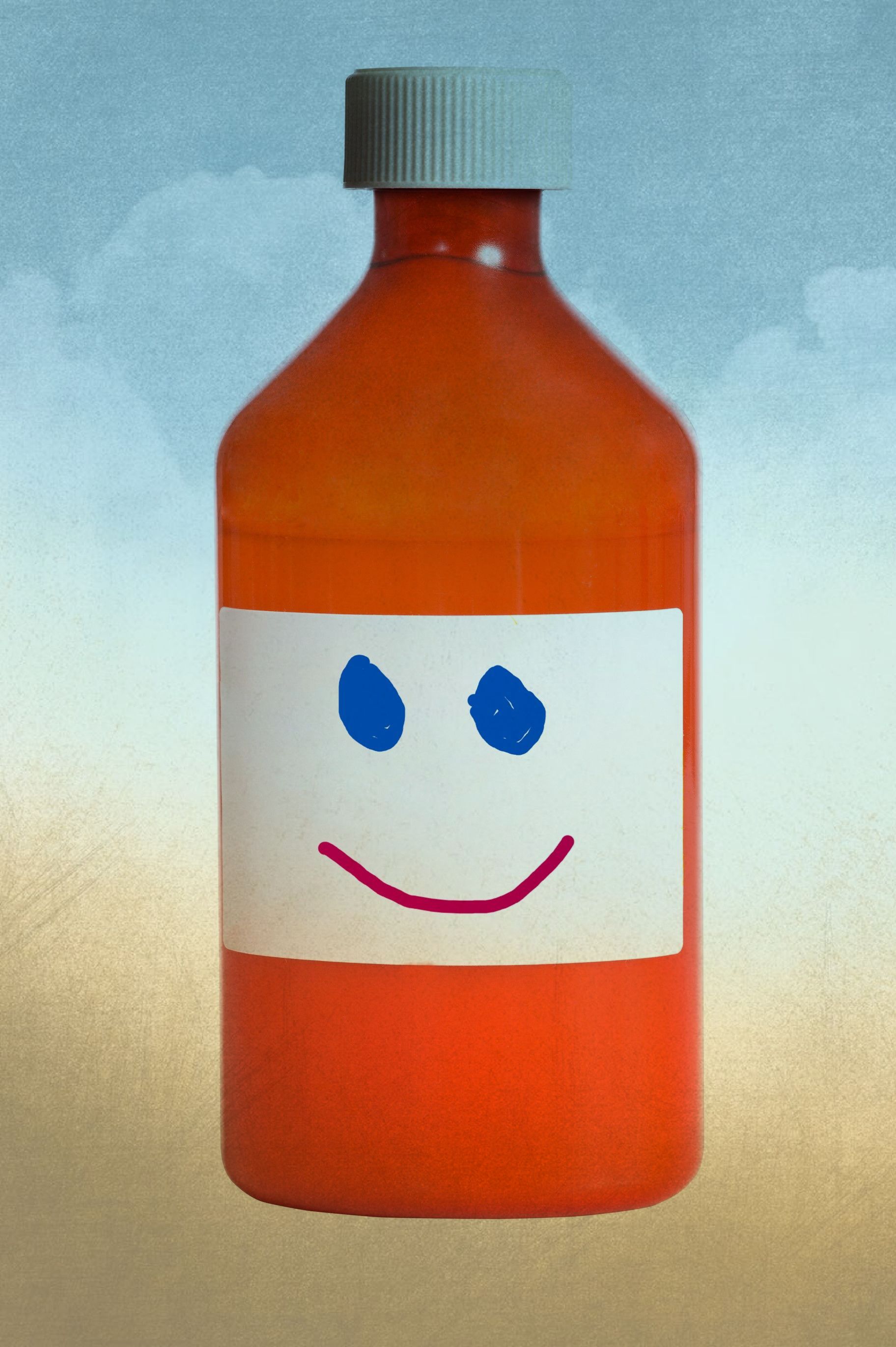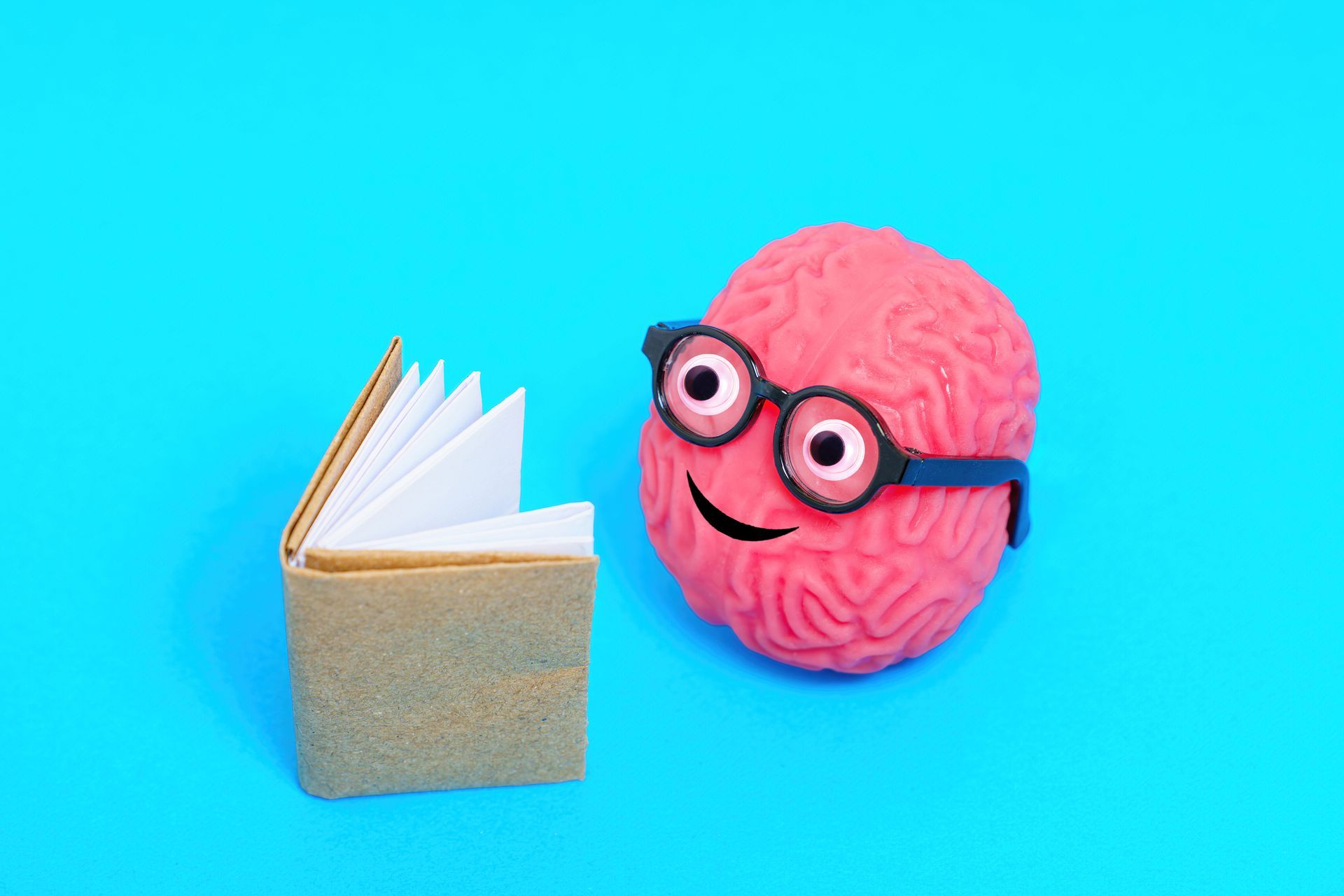SSRIs & SNRIs
Information about SSRIs and SNRIs

Serotonin Solution--Mixing Instructions
Sertraline solution (liquid) is useful for younger children or teens who cannot swallow pills.
However, administering this solution is quite different from all of the other typical "pediatric suspension" medications, such as amoxicillin. With those, you give the suspension straight out of the bottle with a medicine syringe, and never put it into any beverage (since it is not reliable how much the child actually takes).
With Serotonin solution, it is VERY IMPORTANT TO DILUTE this solution before giving it to your child!
Giving it straight from the bottle will cause tongue numbness (& it tastes terrible)!
Serotonin Solution CAN ONLY BE MIXED WITH VERY SPECIFIC BEVERAGES! (Do Not Substitute!)
- With the enclosed medicine syringe (or a 1 mL syringe), measure out the exact volume of the medication.
- Mix this small amount of sertraline into 4 ounces of one of the following beverages:
- water
- lemon-lime soda
- ginger ale
- lemonade
- orange juice
- Make sure that your child drinks the entire 4 ounce!
- If your child complains of the
horrible taste, Offer them a
sweet treat after they finish
all of the beverage. Examples include Skittles, chocolate syrup, M&Ms, etc.
Suggestions: give a really desired
sweet treat as a reward only at times when this medication is normally given so that, to get this really special reward, the child is much more willing to take all of their medicine first! (And there is also the old trick of "holding their nose" while swallowing
to avoid tasting it!)

New Paragraph
SSRIs and SNRIs are used to treat anxiety and depression. Unlike stimulants with ADHD, these medications unfortunately do not start to work immediately! The effective dose (which is often much higher than the starting dose) does not reach the peak of its benefits for about 4 weeks (though this may extend to 6-8 weeks for some). Often, however, close contacts of the child or teen, such as parents or siblings, will start to notice subtle signs of improvement in as little as 2 weeks.
For the most part, these medications are usually well-tolerated. However, it is very common to have side effects initially, but luckily they are also temporary, resolving about 2 weeks after being on a stable dose. Since 90% of serotonin receptors are in the gastrointestinal system, it is not surprising that the most common side effects are nausea, especially during periods of fasting (which may be less time than normal for the person to have between regular meals). Therefore, it is very important for anyone taking these medications to avoid skipping meals, especially those head-strong teens who skip lunch because "I don't like the cafeteria food!" It is also a good idea to carry a snack to eat between meals whenever nausea first starts. (This recommendation is the opposite of how to manage nausea and vomiting from a GI viral infection, gastroenteritis, where not eating is the treatment to allow these symptoms to resolve).
Many of the SSRIs may cause "activation," where the person is unable to fall asleep, and is more active and alert. Therefore, it is strongly recommended to take the daily dose in the morning. However, some people may have sedation after taking the medication in the morning. If this occurs, it is perfectly OK to switch to taking it in the evening.
***Continue reading below for more information***
Facts about the FDA "Black Box Warning" for SSRIs
A "Black Box Warning"is the highest level of warning that the FDA can issue to a medication without recalling it. This was issued for the drug class of Selective Serotonin Reuptake Inhibitors (SSRIs) due to finding an "increased risk of suicidal thoughts or actions" in kids <18 yrs old. However, this warning has always been controversial among mental health experts and researchers. It is once again making the headlines (in October 2024), with experts at the National Alliance on Mental Illness (NAMI) and others arguing that the FDA should eliminate the "black box" and add this information to the normal listing of possible drug precautions.
So what does this really mean if your child/teen has depression or anxiety and needs treatment?
First, a brief history on why the FDA created this warning to begin with. In 2004, a meta-analysis was performed on numerous studies that had previously been done to measure the effectiveness of various SSRIs. Since I am not a statistician, a meta-analysis is basically a method of comparing many studies, in retrospect, and trying to make a single overall conclusion from all of the different results. The end result of this was that the "risk of increased suicidal attempts or thoughts of suicide" was 4% of those under 18 years old taking the study medication vs. only 2% of the same age group in the placebo groups (no active medication). The issues that have been raised about this conclusion are that the studies used in the analysis were all in the past and they were not designed to specifically compare the rates of suicide attempts or ideation before and after the study as part of their data. The meta-analysis used the information obtained at the end of the studies to reach their conclusion. Another major criticism about these results is that many of the studies involved depressed patients, who were more than likely already having suicidal thoughts or attempts before the study.
While the FDA issued the "Black Box Warning" with the intention of encouraging physicians to monitor these young patients more frequently, the real-world effect of this warning was that these physicians stopped prescribing these medications for depression altogether.
Since the major risk factor for suicide is depression, and this was not being treated with SSRIs out of fear of the warning, there was actually an increase in the number of suicide attempts and completed suicides in the years after this "Black Box"Warning "was issued!
NAMI recently made their recommendations to remove the severe warning from SSRIs "based on over 14 years of research demonstrating that the observed harms and the absence of observed benefits after the Black Box Warning (was issued) indicate that this is not coincidence."
-------------------------------------------------------------------------------------------------------------------------------------------------------------
So, should I treat my child/teen with medication for depression (or anxiety)?
As expressed by the experts at NAMI, "the risk posed by untreated depression has always been far greater than the very small risk associated with antidepressant treatment."
https://www.nami.org/medications/recent-study-calls-for-reevaluating-antidepressant-warnings/


